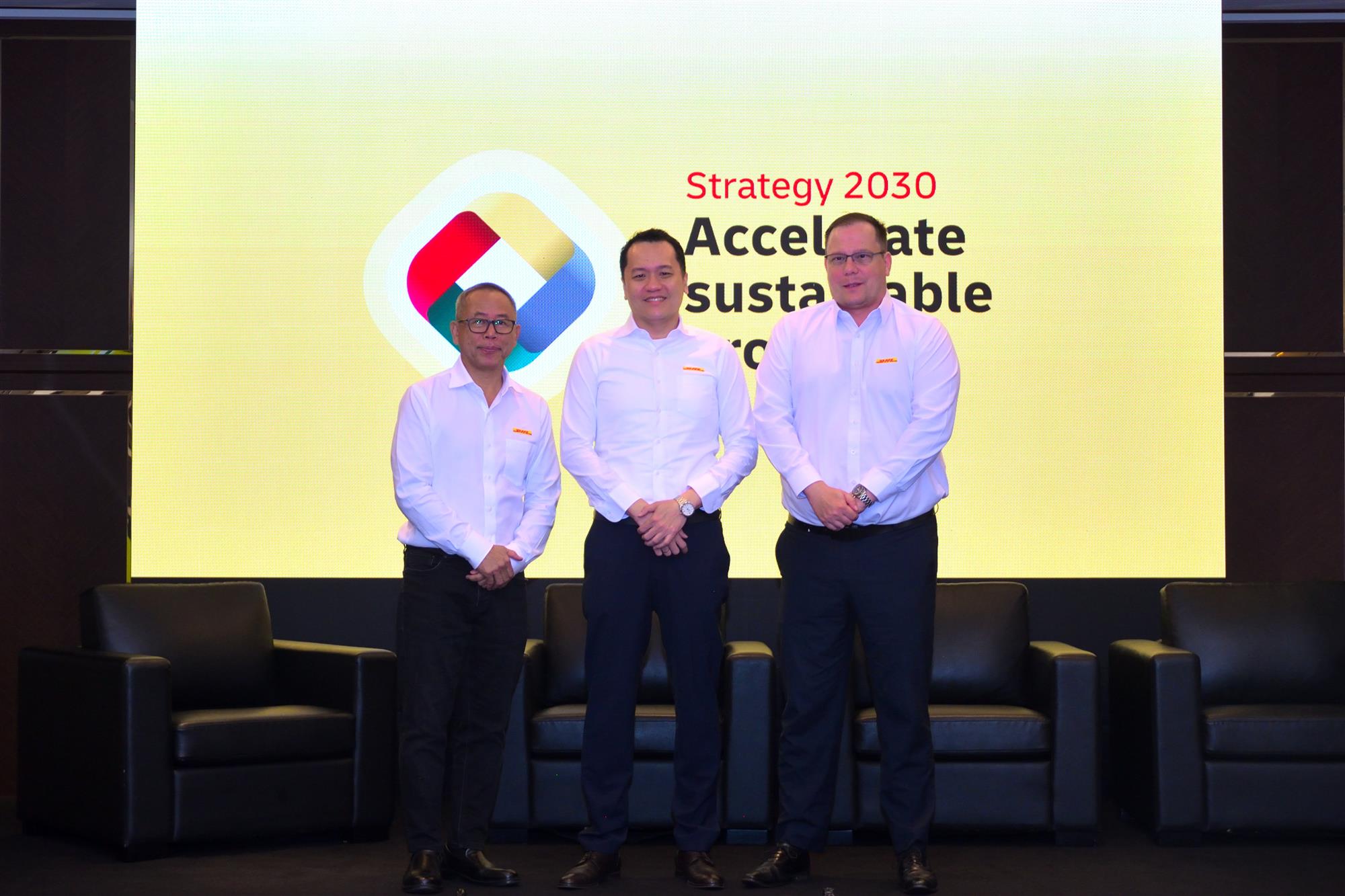DHL has identified growth potential in Indonesia's ecommerce, life sciences, healthcare, and new energy sectors, and it committed to supporting the country's rise as a global trade hub.
"Another sector that we see massive growth opportunities in is new energy in Indonesia, particularly EV batteries," said Matthias Gehrsitz, managing director, DHL Supply Chain Indonesia.
He noted that Indonesia's goal of becoming one of the world's top three EV battery producers by 2027 is also in line with our Strategy 2030 focus in this area.

Left to right: Ahmad Mohamad, senior technical advisor, DHL Express Indonesia; Nicholas Bongsosartono, president director, DHL Global Forwarding Indonesia; and Matthias Gehrsitz, managing director, DHL Supply Chain Indonesia. (Source: DHL)
"Since last year, we have seen at least seven EV manufacturers commit to building production facilities in the country. There is also keen interest from many Chinese EV enterprises looking for a logistics partner that can deliver safe and compliant end-to-end logistics," Gehrsitz said, adding that DHL's existing experience in the automotive industry with customers such as Chery and Wuling Motors, along with regional capabilities and know-how in the EV industry, puts DHL in a "prime position" to help EV players navigate the Indonesian landscape.
To support this fast-growing industry, DHL said customers have access to end-to-end logistics solution tailored specifically for EV supply chains including multimodal transportation management; specialized warehousing with critical value-added services such as battery testing and charging; comprehensive aftermarket battery handling solutions; and a dedicated team of EV logistics specialists to help ensure standards of safety and compliance.
Life science & healthcare
Nicholas Bongsosartono, president Director, DHL Global Forwarding Indonesia, noted that Indonesia's life science and healthcare (LSHC) sector is also large, "but still developing."
"As a country, we've always been heavily reliant on imports in this sector, but there is a push by the government to reduce imports and be more self-reliant," he said, adding that it is projected that the pharmaceutical sector market value will increase to US$11 billion (€9.5 billion) in 2025.
"For us, this would mean investing in the proper logistics infrastructure to support this ambition, such as implementing specialized cold-chain solutions that encourage companies to establish their facilities here in Indonesia," Bangsosartono added.
DHL noted that it has been investing in Indonesia ahead of the curve to meet market demands. This include DHL Global Forwarding Life Science and Healthcare (LSH) Competency Centre in Jakarta offers specialized storage facilities that maintain temperatures of 2–8°C and 15–25°C, ensuring product integrity and regulatory adherence with the support of trained experts.
DHL is also offering DHL Medical Express, a service that combines the division's logistics expertise with a dedicated and unique range of features to create a flexible solution for the Life Sciences industry.
DHL Group also noted its recently announced a strategic investment of €500 million to bolster its Life Sciences and Healthcare infrastructure across all business units in Asia Pacific.
According to the DHL Trade Atlas 2025, Indonesia is expected to rank in the top 30 countries for trade growth in speed and scale over the next five years, driven by rapid digital transformation and strategic infrastructure investments, which present significant opportunities for businesses.
However, a volatile business environment – characterized by geopolitical tensions and shifting trade patterns – poses challenges and uncertainties for growth.
"Indonesia's neighbors have been getting all the attention recently when it comes to supply chain resiliency, but this country has much to offer. We have a large domestic market and talent pool, and the government has been investing in modernizing its logistics sector through the National Logistics Ecosystem platform," said Ahmad Mohamad, senior technical advisor of DHL Express Indonesia.
"We also see growth opportunities in cities beyond the Greater Jakarta area, such as Surabaya, Semarang, Batam, and Bali, among others, which are viable alternatives for businesses looking to diversify their supply chains. More importantly, we also want to help Indonesian brands expand their horizon beyond the local market through e-commerce," he added.
In addition to international brands expanding into Indonesia, DHL said there is also a growing pool of Indonesian brands that are going global.
"Indonesia's strategic location and proximity to major markets in the region make it an attractive location as a global trade hub. It is actively part of at least 12 major bilateral and multi-lateral trade agreements, including the Regional Comprehensive Economic Partnership (RCEP), currently the world's largest free trade agreement," DHL added.
DHL Group has been investing in Indonesia to help boost the country’s logistics and supply chain capabilities. It has more than 4,000 employees in the country, with approximately 180 facilities across Indonesia, to help cater to the needs of rapidly growing companies in the country.



